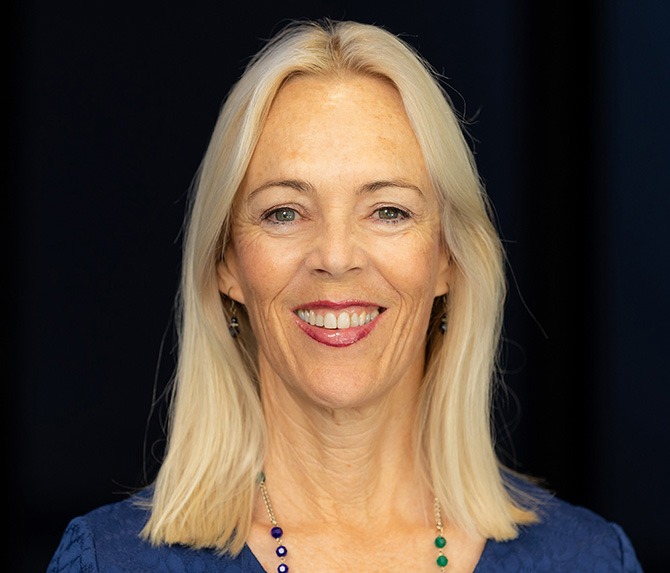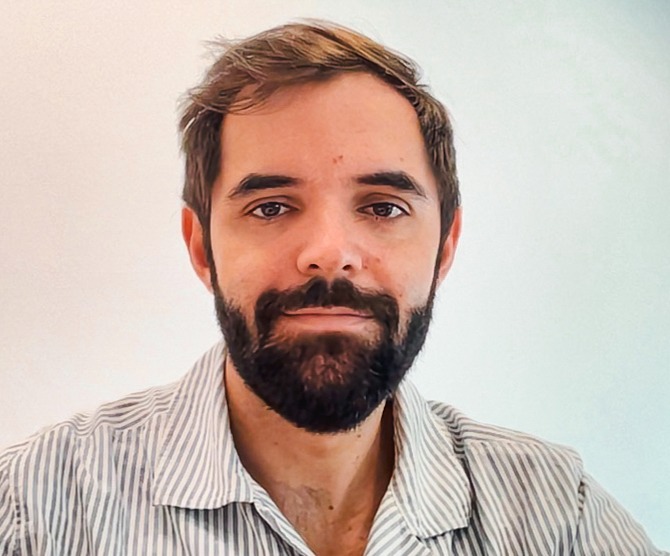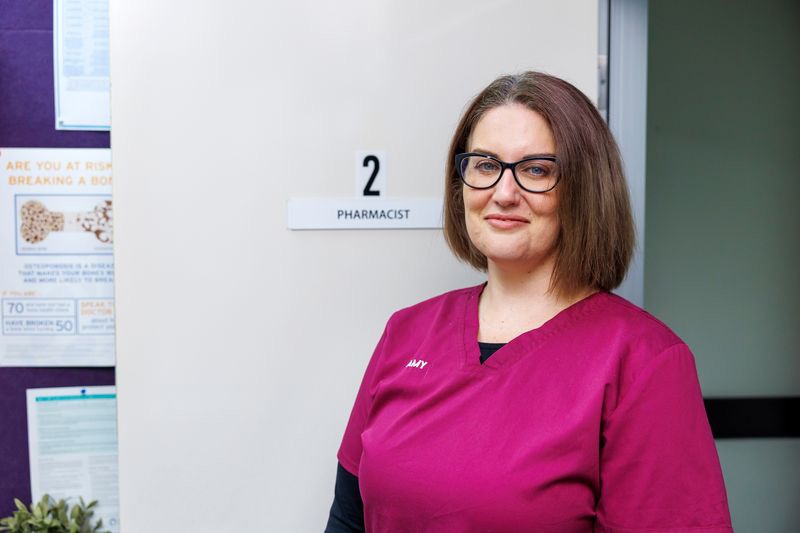Pharmacist scope of practice is expanding at a rapid rate. With more services, training courses and learning opportunities on offer – it can be difficult to know which direction to choose.
Australian Pharmacist spoke with Bridget Totterman MPS – multi-pharmacy owner and PSA Board Director – about how she’s paving her own path to become a pharmacist prescriber.
Tell us about your journey to becoming a prescribing pharmacist.
It’s still ongoing! I’m currently enrolled in PSA’s Pharmacist Prescribing Scope of Practice Training Program – which is in-depth, and certainly challenging, but in a good way.
I chose the PSA course because it’s self-paced and the team is so supportive. I know PSA will continue to support me through the implementation of new services, and beyond.
The training has two arms – a prescribing and clinical practice training program.
The prescribing component involves theory-based learning focused on the prescribing cycle, including information gathering, clinical decision making, communicating decisions to patients and other healthcare professionals and reviewing those decisions.
Meanwhile, the clinical component focuses on differential diagnosis. While we learn about that at uni, the clinical training takes a more rigorous approach. It reminds us of the step-by-step process, practical implications and alternative explanations for each symptom.
Even if you’re 99% confident in a patient’s diagnosis, it’s great to challenge yourself and think about what else it could be. This helps to build confidence in the diagnosis and offer the appropriate treatment plan. It also highlights red flags for certain conditions and reiterates the need for referral in these cases – ensuring we are always working as part of a broader healthcare team in the best interests of the patient.
Are you offering expanded services in your pharmacies?
Some of our pharmacists have completed the training and are already practicing as prescribing pharmacists.
As of 1 July 2025, the Queensland pharmacy prescribing pilots became permanent for listed acute conditions and medication management services, such as therapeutic substitution and adaptation, and PBS Continued Dispensing Arrangements. So appropriately trained pharmacists can prescribe hormonal contraception and medicines for a raft of acute conditions, such as ear infections and skin conditions. They can also prescribe and administer travel vaccines and provide smoking cessation and weight management services.
If someone comes into the pharmacy with shingles, our trained pharmacists can now prescribe the right treatment for the patient. We all know time is of the essence when it comes to antivirals, and if patients have to wait to see their GP, they may miss the window where treatment is effective.
What impact has this had on patients and staff?
Patients have always found pharmacy convenient. Every day of the week, patients can walk in and speak to a trained healthcare professional – no appointment needed. With expanded scope and the ability to prescribe more medicines, we now have more tools in our belt to provide quality healthcare solutions to our patients in a timely manner.
It’s also great for pharmacists’ professional satisfaction. We had a team meeting at one of my pharmacies last week, and the whole team was so excited to get behind the prescribing pharmacists so we can all help patients access the healthcare they need in a timely way.
Our amazing pharmacy assistants have also jumped on board and are of vital assistance in triaging patients and letting them know care is available. It lifts everyone’s confidence and reminds us why we love this profession and why we chose pharmacy in the first place – to help patients.
What would you say to pharmacists apprehensive about prescribing?
Come to PSA25! Listen to the speakers on the scope of practice panels and talk to people offering these services from different states and territories.
Back in 2014, I was lucky enough to be one of the first pharmacists to participate in the Queensland Pharmacist Immunisation Pilot, allowing us to administer flu vaccines to patients.
At the time, I had pharmacists working for me who said, ‘I’ll never be able to vaccinate. I couldn’t imagine putting a needle in someone’s arm’. But now they are smashing out vaccinations. While it’s normal to be hesitant, remember that PSA has a long history of supporting pharmacists every step of the way, wherever your scope of practice takes you.
You don’t have to see the whole staircase, just take the first step. And if you’re comfortable, the next step. Who knows where it’ll take you.
Which aspect of scope of practice expansion excites you the most?
Helping more people, more quickly. It’s disheartening when red tape gets in the way – like when a mum walks into the pharmacy at 10:00 pm on a Friday with a sick child, no access to a GP, and you’re limited in your ability to help.
Hopefully, scope of practice expansion will help to expand the workforce by attracting more pharmacists to our profession. And if we’re all doing more, that should help to improve the healthcare access crisis we’re experiencing at the moment.
What services are you keen to see pharmacists branch into?
Preventative care. I think we can have a huge impact on patients’ lives through weight management and smoking cessation. We chat to people all day, every day. While they may feel uncomfortable discussing their weight in other healthcare settings, speaking with the friendly pharmacist they’ve seen every week for the past 20 years might put them more at ease.
Where do you see scope of practice going nationally?
I’m hoping it will be a domino effect. I don’t want to see resources wasted with people trying to reinvent the wheel. Other states and other jurisdictions should adopt guidelines and protocols that have been proven to work. We need consistency across the country, and while that may take time, we should aim to make the process as seamless as possible. Let’s just take what works and roll it out.
What scope of practice sessions or panels are you excited to see at PSA25?
There’s so many. I always look forward to hearing from Penny Shakespeare, Deputy Secretary for Health Resourcing at the Department of Health, Disability and Ageing – who’s participating in the first Policy Panel on Friday morning (1 August).
Professor Bruce Warner, Honorary Professor of Pharmacy Policy and Practice at theUniversity of Nottingham in the UK, will also be sharing his experiences from an international perspective. I love hearing from people who are actually practicing at full scope.
Pharmacists enhancing Palliative Care across the Health Neighbourhood is another session I hope pharmacists will go along to. Now that PSA’s ASPIRE Palliative Care Foundation Training Program is freely available, pharmacists interested in that field make such a difference in people’s lives.
Why is it important to connect with other pharmacists at industry events like PSA25?
To connect with others in our profession. Who knows, you might meet your next employer or someone you want to go into business with. You might even end up with a lifelong mentor or a mentee. It’s all about connection, positivity and uplifting each other.
Learn more about expanding your scope of practice from Bridget Totterman and others at PSA25, held in Sydney from 1–3 August. Register here to attend.



 Professor Clare Collins[/caption]
Professor Clare Collins[/caption]
 Associate Professor Trevor Steward[/caption]
Associate Professor Trevor Steward[/caption]



 Amy Gibson MPS[/caption]
Amy Gibson MPS[/caption]






